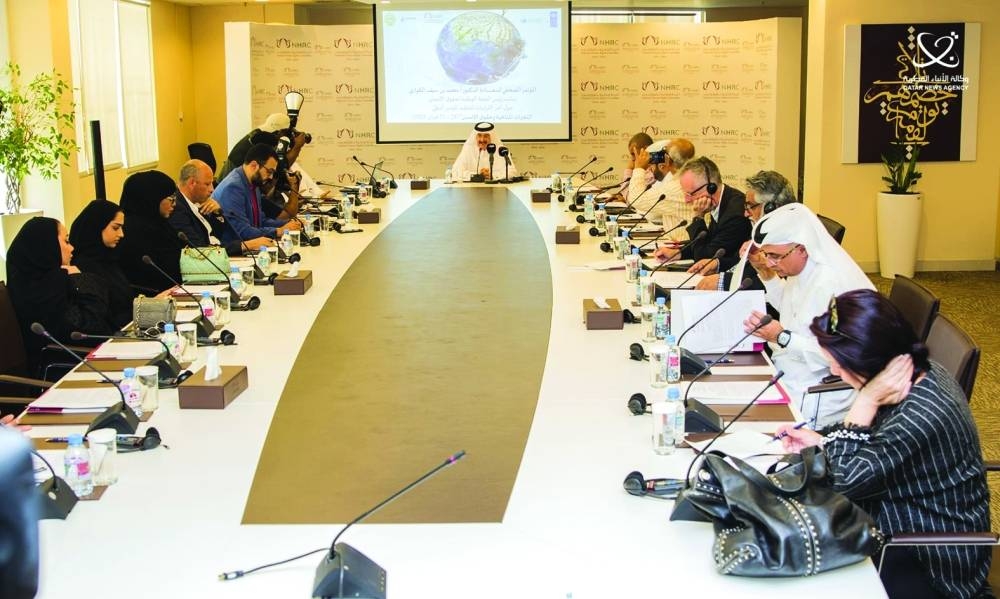Under the patronage of HE the Prime Minister and Minister of Interior Sheikh Khalid bin Khalifa bin Abdulaziz al-Thani, the National Human Rights Committee (NHRC), in co-operation and co-ordination with the Office of the UN High Commissioner for Human Rights, the UN Development Program, the League of Arab States, and the Global Alliance of National Human Rights Institutions (GANHRI), will hold a conference on climate change and human rights from February 21-22.
Regarding the activities of the conference, HE Deputy Chairman of the National Human Rights Committee Dr. Mohamed bin Saif al-Kuwari said at a press conference that more than 300 representatives of countries, international organisations, think tanks, universities, national human rights institutions, civil society organisations and international experts will participate in the conference, where they will discuss climate change issues from a human rights perspective, and will come up with concrete recommendations for rights-based climate action for the benefit of all.
Al-Kuwari said that the conference aims to emphasise the importance of rights-based climate action, highlight good practices relevant to Qatar and other actors and partners, including governments, the UN, civil society organisations and companies, as well as develop recommendations to enhance co-operation to support rights-based climate action all over the world, and especially in the Middle East and North Africa region.
The established scientific facts confirmed that the climate changes witnessed by the planet are caused by human activity represented by the high percentage of greenhouse gases in the atmosphere, which caused the ozone hole, al-Kuwari said, pointing out that these gases began to gradually decrease after the Montreal Protocol on Substances that Deplete The ozone Layer came into force on Jan. 1, 1989.
The NHRC Deputy Chairman said that the ozone hole began to recover and narrow according to international observatories, adding that climate changes also caused many natural disasters, such as floods, hurricanes, strong winds, desertification and drought, but the most severe and destructive disasters, according to scientists' estimation is the melting of ice, which could cause sea level rise by between 40 and 60 cm on average in 2050.
His Excellency also highlighted that these variables could affect global food security through the drying up of wetlands, and thus the decrease in agricultural yields, in addition to the spread of some diseases and epidemics that could be caused by a rise in temperature.
HE Dr. Mohammed bin Saif Al Kuwari stressed the need for human rights institutions in the world to demand the rights of people affected by climate change, and who became without shelter, food, housing, education, either because of floods, hurricanes, or other climatic and natural changes, indicating that the conference will represent a scientific and cultural platform for the exchange of information, experiences, data, studies and research published in the field of protecting human rights from the effects of climate change and achieving climate justice.
His Excellency also stressed the need for human rights laws, principles and standards to become the cornerstone of governments' efforts to mitigate the effects of climate change.

